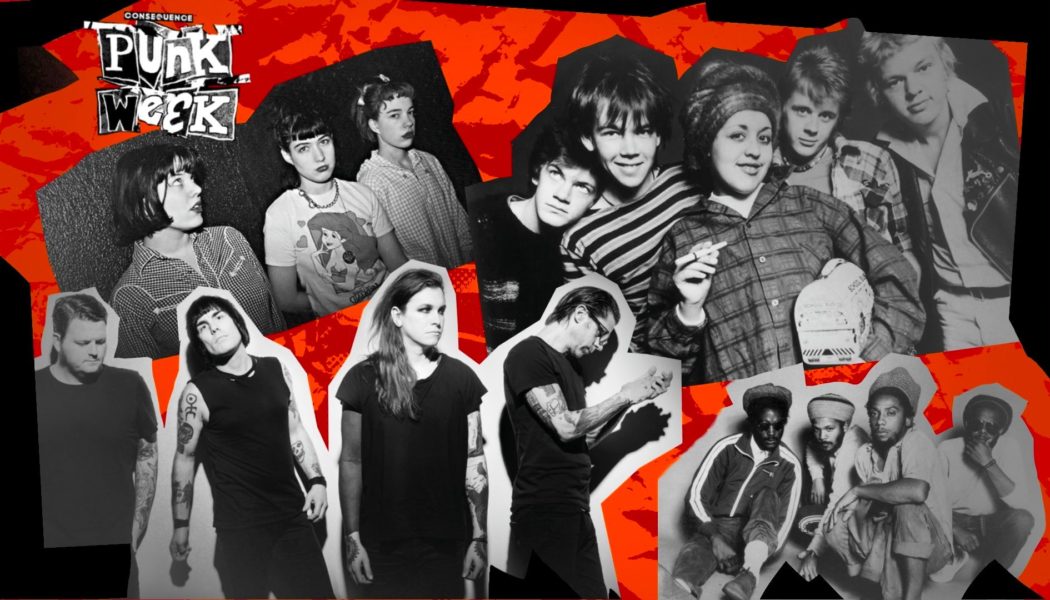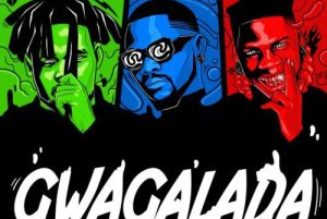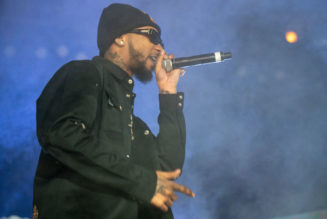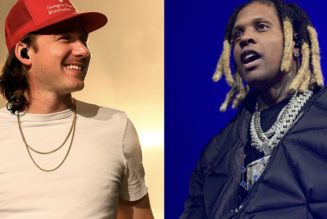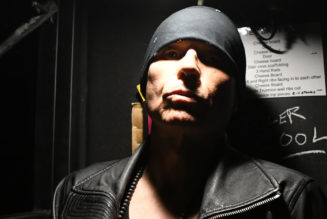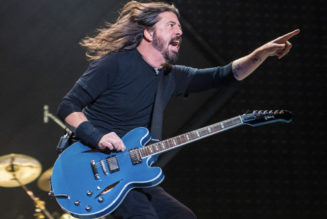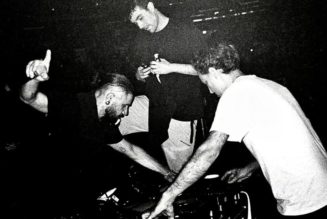
Consequence’s Punk Week continues with an essay on the “outsider” artists who have succeeded in and revolutionized the genre, despite the odds being stacked against them. Keep checking back throughout the week for interviews, lists, editorials and videos — it’s all things punk, all the time.
Flip through the annals of punk history, and consider the bands often cited as icons: The Clash, Sex Pistols, X, Black Flag, Fugazi, Ramones, Green Day, Rancid, blink-182. These artists certainly deserve their lofty status and every plaudit thrown their way, although you might notice that these acts (largely) feature lineups dominated by straight, white, cisgender men.
On the surface, this seems counterintuitive. Punk is often positioned as a reaction against the mainstream, a way to include marginalized voices that don’t fit in other places. Not to mention, Black musicians created rock ‘n’ roll and reggae — two genres from which punk evolved, especially in the UK.
Related Video
However, much like the history of rock ‘n’ roll, punk history has been both whitewashed and viewed as male-centric. That’s partly due to association; for a multitude of reasons, rock ‘n’ roll itself became quite segregated as the genre evolved. For far too long, women who played rock music were seen as a novelty; openly queer musicians were also rare in any genre, much less rock music.
Genres that start out with revolutionary intentions often become reactionary — and the acts within the movement either start to resemble (or even become) the centrist mainstream. In fact, it’s not surprising that the systemic racism, homophobia, and misogyny linked with rock ‘n’ roll can also apply to certain facets of punk rock or cropped up in lyrics.
Yet despite punk history being homogenous (and, at times, problematic), punk musicians have always been diverse — certain gatekeepers just weren’t necessarily willing to listen until now. It’s taken decades of social and cultural progress to get punk to a more diverse and inclusive place.
Credit a new generation of historians and critics who are willing to interrogate — and correct — prevailing historical narratives, while admitting where past movements fell short. And credit younger, more open-minded generations of music fans, who don’t have the same biases (or black-and-white worldview) as previous generations.
“We Didn’t Fit in at All”: The Rust Belt and Proto-Punk
Like punk, proto-punk is a nebulous term, with a somewhat amorphous timeline stretching from the 1960s through the mid-1970s. You had Krautrock, garage rock, psychedelic pop, and bands that favored music somewhere in between, such as The Velvet Underground (featuring drummer Mo Tucker) and the polarizing trash-glam band New York Dolls. Then there’s the Rust Belt, which arguably served as ground zero for American punk rock.
From the late 1960s through the mid-1970s, Michigan produced the MC5, Alice Cooper, The Stooges, and a trio called Death. Brothers David, Bobby, and Dannis Hackney drew on the musicianship they developed playing together in a funk band, combining airtight arrangements and taut dynamics with throttling proto-punk verve. Comprising demos dating from the mid-1970s, Death’s seminal …For the Whole World to See collection is an adventurous blend of hard rock, jazz, and psychedelia.
They were also very ahead of their time. “We didn’t fit in at all. The rock bands that we identified with… we didn’t hang out with those guys,” Bobby Hackney told NPR in 2010. “Being in the black community and having a rock band, people just looked at us like we was weird. After we got done with a song, instead of cheering and clapping, people would just be looking at us.”
“Oh Bondage, Up Yours!”: Feminist Punk in the UK
Starting in the mid-1970s, the UK boasted punk pioneers and a fierce inclusive streak. Actress and singer Jayne County, an American who was in Warhol’s orbit and is regarded as the genre’s first out transgender musician, led Wayne County & the Electric Chairs, who brought a much-needed theatrical-glam edge to the genre.
On the political front, punk bands such as The Slits — a reggae-inspired band from London — teamed up with The Clash to unite against nationalism and xenophobia. “Punk shows were bringing people together,” DJ and musician Don Letts told The Guardian. “The Clash were doing Rock Against Racism concerts. The Slits were doing gigs with Aswad. We were all cheering each other on. No racism in our bubble.”
That cross-pollination eventually spurred the development of post-punk, while also ensuring that early punk bands (including Edinburgh pogo-punks Rezillos and the minimalist Au Pairs) had their own style. Few acts stood out more than London’s X-Ray Spex, the ultimate feminist punks. “Some people think little girls should be seen and not heard,” Poly Styrene says coolly at the start of the group’s debut single. Then comes the song’s titular uppercut, shrieked in a blood-curdling voice: “But I think, ‘Oh bondage, up yours!’”
With that line alone, Styrene established the X-Ray-Spex mission statement: They weren’t interested in conforming to anyone’s stereotypical worldview. (For more reading, a new documentary on Styrene’s life, Poly Styrene: I Am A Cliché, further makes the case for her brilliance and impact.)
The United States of Punk
During the 1970s, New York City’s punk scene thrived due to clubs such as Max’s Kansas City and CBGB, which booked new bands and gave space for icons such as Blondie and Patti Smith, as well as Talking Heads bassist Tina Weymouth. However, when compared to the UK, the scene wasn’t nearly as open-minded: In 1979, the critic Lester Bangs wrote a Village Voice piece, “The White Noise Supremacists,” that started off with a friend of his tossing off a casual racial slur — and went on to challenge the idea of the NYC punk scene as some inclusive Utopia.
Much more diverse was the West Coast US punk scene. “In the early days of punk rock, it was very well integrated with women, African-Americans, and Chicanos,” the musician Alejandro Escovedo, who was in early punk band The Nuns, said in 2019. “But rock in general — as far as the corporate rock-n-roll world — was sort of void of that sort of integration.” Escovedo’s younger brother, Javier, happened to play in The Zeros, a punk band featuring “four young Chicanos from San Diego,” as he noted.
The Zeros were in good company: San Francisco also boasted the Avengers (led by the commanding Penelope Houston), while Los Angeles had X’s howling poet Exene Cervenka and The Go-Go’s. While the latter were known for their pop hits, there’s a great argument to be made for them as pop-punk pioneers; Belinda Carlisle was even in Germs for a brief moment. All of these groups put a fresh spin on punk, driven by sometimes-surprising influences (for example, X liked the Doors) and sonic approaches informed by iconoclastic, genre-spanning worldviews.
One of the more (still) underrated LA punk bands is Bags. Like many late-’70s punk artists, the group released very few songs during their time together, although what music they did issue — a 7-inch featuring the jazz-tinted fury of “Survive” alongside the melodic power-riff gem “Babylonian Gorgon” — mutated punk’s DNA. (Leader Alice Bag has released a string of uniformly excellent solo albums in recent years that underscore her punk bona fides and influence on movements such as riot grrrl.) Back in the ’80s, Bag also appeared on a song by the abrasive electropunk act Nervous Gender, an early influence on queer punk.
Punk very quickly spawned the offshoot genre hardcore; in fact, Southern California had one of the most active scenes in the US. Plenty of early ’80s hardcore hasn’t aged well, as many songs come across as whiny and entitled today. One major exception to this rule is the music that poured out of Washington, D.C. — namely, Bad Brains. Driven by the charisma of vocalist H.R. and the thrashing virtuosity of guitarist Dr. Know, the band whipped up churning hardcore punk with a positive edge — and then bent eardrums further by introducing elements from jazz, reggae, and metal into the melee.
“I’ve recently discovered that the role of Bad Brains in music is as unifier of all genres and sounds,” bassist Darryl Jenifer said in 2019. “We represent fearless creativity, void of race, creed, color — all the isms.” Unsurprisingly, Bad Brains were also one of the best live punk bands — they could switch between tornadic punk and laid-back reggae on a dime — and were known for pointed lyrics, from the true-life “Banned In D.C.” to the social critique “Big Takeover.”
In modern interviews, band members continue to call out how diverse their influences really were. “I consider myself a multi-styled instrumentalist, known for a brief encounter with punk rock as a teen,” Jenifer added. “When I discovered punk rock, I was attracted to it because it was free in every way. I was a shy youth — maybe I can play without even being seen on stage. I like to say I pioneered progressive punk: high-energy, precise, passionate riffage.”
Bad Brains’ wide-ranging approach to music is seen especially in the LA funk-punk-ska band Fishbone. If you’re toasting to the apocalypse, you could do a lot worse than throwing on the group’s six-minute epic “Party at Ground Zero,” although Fishbone is interested in far more than just serenading the end of the world. Throughout the ’80s and ’90s, they took a patchwork-quilt sonic approach to music — songs also dabble in metal, soul, even acoustic rock — to provide a soundtrack for any occasion.
I Love the ’90s — and Beyond
The mainstream ’90s US punk resurgence at first looked a lot like the first wave in the ’70s: white and male-dominated. However, bands such as L7, Hole, and Babes in Toyland emerged in the spotlight in parallel with grunge, while The Distillers formed at the end of the decade. And both the riot grrrl and queercore movements provided antidotes to the alternative boom while broadening punk rock’s scope.
Started in the ’80s, queercore shook up the status quo by taking on punk’s often-narrowing worldview via music and zines and defining a space that didn’t hew to conventions. “The original punks from the ’70s, like Patti Smith and Iggy Pop, were all about breaking with everything that America was moving towards,” Yony Leyser, who directed Queercore: How to Punk a Revolution, told The Guardian. “They thought of the middle-class suburban couple with two kids, a job, and a dog as a prison they were fighting against. And, in fighting it, they embraced gender-fluid, feminist, and queer ideologies.”
Queercore coalesced around bands such as Tribe 8, Pansy Division, and especially Team Dresch. The latter were adjacent to (and associated with) riot grrrl, by virtue of the fact their music and lyrics aligned with the movement’s themes. However, the Olympia, Washington, band connected thanks to candid lyrics, empathetic vocals, and urgent music that drew from the entire indie and punk continuum. Team Dresch’s albums were reissued in 2019, (re)introducing the band to modern audiences.
Riot grrrl emerged as a reaction to the oppressive values held up by patriarchal societies. The rallying cry of the movement — “Girls to the front!” — galvanized bands such as Sleater-Kinney (and their precursor Excuse 17), Bratmobile, Huggy Bear, and Bikini Kill. Kathleen Hanna and co. in particular seized the moment and crystallized a sound and ethos that continues to reverberate through younger generations — albeit with much more awareness of the movement’s shortcomings (i.e., its lack of racial diversity).
Riot grrrl’s spirit is alive (and more inclusive) today thanks to initiatives like Girls Rock Camp and bands such as recent Epitaph Records signees The Linda Lindas, who received a stamp of approval from both Bag and Hanna.
“Discrimination Is Not Okay”: The Modern Era
Today, punk rock has splintered into dozens of niche genres and offshoots, including the ever-enduring pop-punk. At its best, the genre is exhilarating and life-affirming; at worst, it’s derivative, juvenile, and even misogynistic.
In the ’00s, Warped Tour’s popularity explosion coincided with the rise of pop-punk. Accordingly, the genre was driven by male vocalists; notable exceptions included Paramore (who later distanced themselves from the ugliness of their own song “Misery Business”), Tonight Alive, and Hey Monday.
Yet as the 21st century progresses, notions of misogyny and rigid gender stereotypes have become unacceptable. Punk has never and probably will never be the revolutionary Utopia people want it to be. However, the community is no longer willing to let these things slide, and it’s holding members accountable. Burger Records shut down in the wake of misconduct allegations against multiple musicians on the label, while bands like Simple Plan and Culture Abuse have either shaken up their lineups or disbanded all together as members faced sexual misconduct allegations.
This shift toward accountability is thanks in no small part to figures such as the hardcore punk band War on Women, which calls out every -phobia and -ism in the book — transphobia, homophobia, ableism, racism — while working tirelessly to ensure concerts are safe and accessible to all.
Vocalist Shawna Potter is the perfect person to deliver these messages; her fiery, strident voice makes it clear exactly where the band stands on every issue. “I believe it’s any reasonable person’s duty to overtly state, ‘Everyone is welcome here, and discrimination is not okay. If you’re harassed in here, we have your back,’” she said in a 2019 interview in response to a question about the fraught political environment. “We have to be as overt as the people that are filled with hate.”
Against Me! vocalist/guitarist Laura Jane Grace has also become a modern punk role model. Her band spent the early part of the ’00s reinvigorating folk-punk, then applied the same inventive spirit to major-label punk. (Justice for 2007’s New Wave!) In 2012, Laura Jane Grace came out as transgender; her willingness to write and speak openly about gender dysphoria, her transition, and mental health has helped propel the modern punk world into a more welcoming place.
Grace’s activism has also proven enormously influential. In 2016, Against Me! performed in North Carolina after the state passed a discriminatory law banning trans individuals from certain bathrooms. “I’m going to create an event around the show as a form of protest to say that despite whatever stupid laws they enact, trans people are not going to be scared. They are not going to go away,” she told BuzzFeed at the time. “When you feel targeted as a trans person, the natural inclination is to go into hiding. But visibility is more important than ever; to go there and have the platform of a stage to stand on and speak your mind and represent yourself.”
In an interview with NPR, Grace noted how much punk’s willingness to envision new and different beauty standards inspired her as a teenager — and continues to inform her work. “[That was] one of the very appealing things to me about the punk rock world when I was, like, 15, 16, especially stumbling onto, like, anarchist punk rock and activist punk rock,” she said. “And, you know, a scene that was really strongly feminist and anti-racist and anti-homophobia, anti-transphobia, all about body liberation, all about… being yourself. And [those] are values I still strongly hold onto.”
Today’s punk fans are lucky enough to have any number of acts to embrace, including genre shapeshifter Willow Smith and bands such as the pop-punk trio (and recent Consequence Artist of the Month) Meet Me @ The Altar. The latter’s songs “Garden” and “Hit Like a Girl” offer an abundance of spring-loaded bass lines, pogoing effervescence, and pointed lyrics. “I take a lot of inspiration from [basically] any woman that paved the way for herself and is just a great vocalist,” the group’s Ada Juarez, who is Latina and identifies as queer, recently told Consequence.
Despite these promising signs, things certainly still aren’t perfect; as with any genre or movement, punk still has a long way to go to be more equitable. However, it’s clear punk’s future is in good hands, both artistically and historically. More punk enthusiasts than ever are keen on acknowledging and elevating the punk visionaries who were overshadowed or not given enough space to excel, paving the way for a much more diverse, interesting future.
